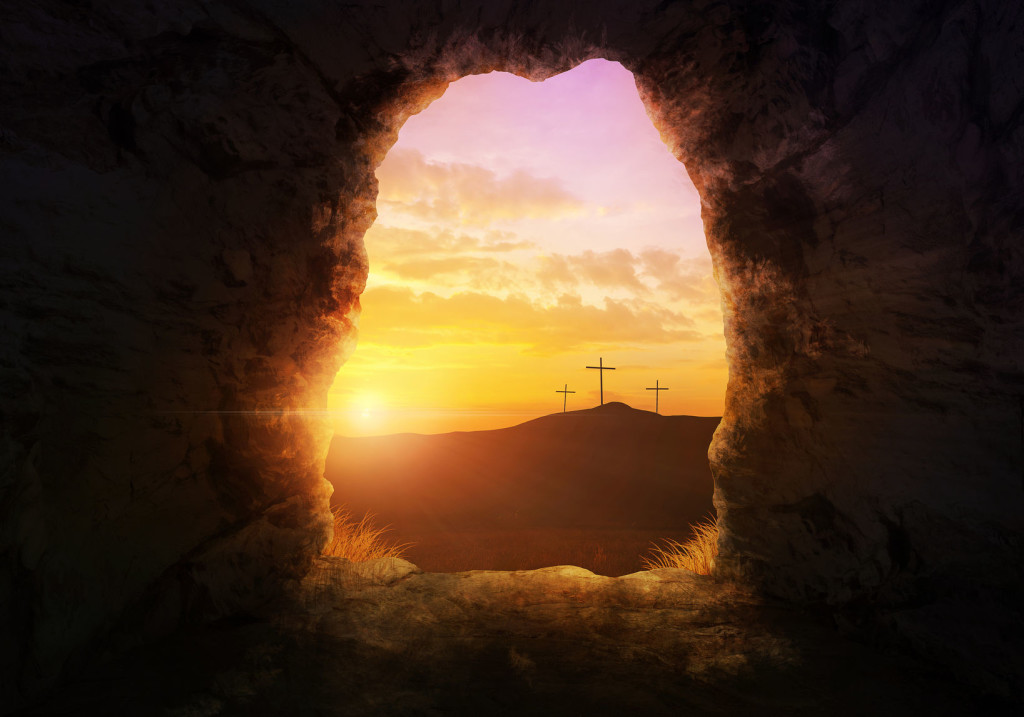Diminishment and the Journey to God
by Robert Fontana

There is no ultimate communion with God without dying. Lazarus died and was raised by Jesus but died again. We all know this and, of course, try to think about it as little as possible. It reminds me of the preacher who was giving a fiery sermon one Sunday morning, talking about the evils of this world and the glory in the world to come. He shouts out, “I’m on the train to glory; who’s coming with me? Let me see those hands. I’m on the train to glory; now who’s coming with me?”
Men and women, young and old, began raising their hands and shouting out, “Count me in preacher, I’m getting on that train to glory!” “Me too! I’m coming!”
The preacher looked around and felt mighty proud that his preaching had stirred such faith. All hands were up, and the people were shouting, “I’m on the train to glory! I’m on the train to glory!”
That is, all hands up but one. A young man in the back pew was quietly looking around, keeping his hands close to his sides. The preacher walked up to him and said, “My young brother, don’t you want to join us on that train to glory?!” The young man looked up at the preacher, paused, and asked, “TODAY?”
We all want to get to heaven, but not today. And yet, there is no other way to eternal communion with God except through the diminishment of the body and death. We can be forgiven for not keeping this in the forefront of our minds, especially when we are young and/or new in our faith.
When I began to discover God’s love in my life, I felt so much joy and motivation to be a better person. I read the Gospels which began with Jesus’ doing amazing healings and people leaving all to follow him. I was in high school, and the most immediate impact on my behavior was that I began to make time for prayer, learning to fast, avoiding alcohol, and wanting to respect girls as I began dating.
Jesus not only awakened his followers to a new way of being in the world as his disciples. He also prepared them for the struggles to come by teaching them to develop the virtues and character essential to discipleship. Jesus said to his disciples, “Whoever wishes to come after me must deny himself, take up his cross, and follow me. For whoever wishes to save his life will lose it, but whoever loses his life for my sake will find it.” Matthew 16:24-26

Jesus laid a spiritual framework for mature discipleship capable of confronting the struggles to come: prayer, alone and with others; the Beatitudes, the disciplines of fasting and almsgiving; and the creating of a new community in which tax collectors and public sinners, men and women and children are welcome. Essential to this new way of living was the practice of “love of enemies” and non-violence. Jesus set the stage for a spirituality of diminishment: relinquishing worldly power for spiritual power.
We experience a form of diminishment, a dying to self, in conforming our lives to Jesus’ life. We let go of our sins, unhealthy habits, negative biases, prejudices and resentments and unhealthy attachments to power, positions, possessions, and privilege, and replace these with the spiritual disciplines mentioned above. This brings us great joy and inner peace.
And as we mature in faith and put our gifts to the service of the Kingdom, we also discover our limitations, the limitations of others, especially those in the community of faith. I can remember Lori’s and my first foray into an intentional community with other like-minded people who wanted to build a community among the poor. It was a disaster! We were all so high and mighty and thought we were creating a modern version of St. Francis and his followers. Wrong! We left it after six months.
We discovered just how little wisdom, humility, and communication skills we had.
However, we learned from our failures and began to see that God uses our limitations and weaknesses for God’s good purpose. God was training us to have the fortitude and faith to cope with the diminishment that was sure to come through experiences of sickness, the tragic deaths of young friends and family members, the persistent presence of mental illness in people we love, and our own growing fragility as we’ve aged: “…we even boast of our afflictions, knowing that affliction produces endurance, and endurance, proven character, and proven character, hope, and hope does not disappoint, because the love of God has been poured out into our hearts through the holy Spirit that has been given to us.” Romans 5:3-5
Diminishment is the fundamental path to God. Paul learned this while begging God to remove a certain “thorn in his side:” But he said to me, “My grace is sufficient for you, for my power is made perfect in weakness.” Therefore, I will boast all the more gladly about my weaknesses, so that Christ’s power may rest on me. 1 Corinthians 12:9
By embracing the spiritual journey when we are young and able, and cultivating a practice of letting go and trusting in God, we are preparing ourselves to face the struggles that come with the diminishment of our physical and mental abilities through sickness and aging. But we face death, both our own and the death of those whom we love, not like those who live “without hope.”
1 Thessalonians 4:13-14
“Do not let your hearts be troubled. Believe in God, believe also in me. In my Father’s house there are many dwelling places…I go to prepare a place for you.” John 14:1-3
Death may come suddenly through tragedy or illness, or slowly over months or years. Regardless, all of us must journey through a personal Gethsemane and Calvary on our way to that “train of glory,” resurrected life. This is not a cause for fear, avoidance, or despair. It is, rather, just an aspect of life that we need to accept with a humble combination of gratitude and grieving. We grieve all the losses, and we give thanks for all the blessings.
We are not alone in our diminishment. Jesus is Emmanuel, God with us, and with us, too, are our loved ones. In the end, we hope for what we Catholics call “the Happy Death,” surrounded by our family and friends, and cradled by the graces of the Holy Spirit.
